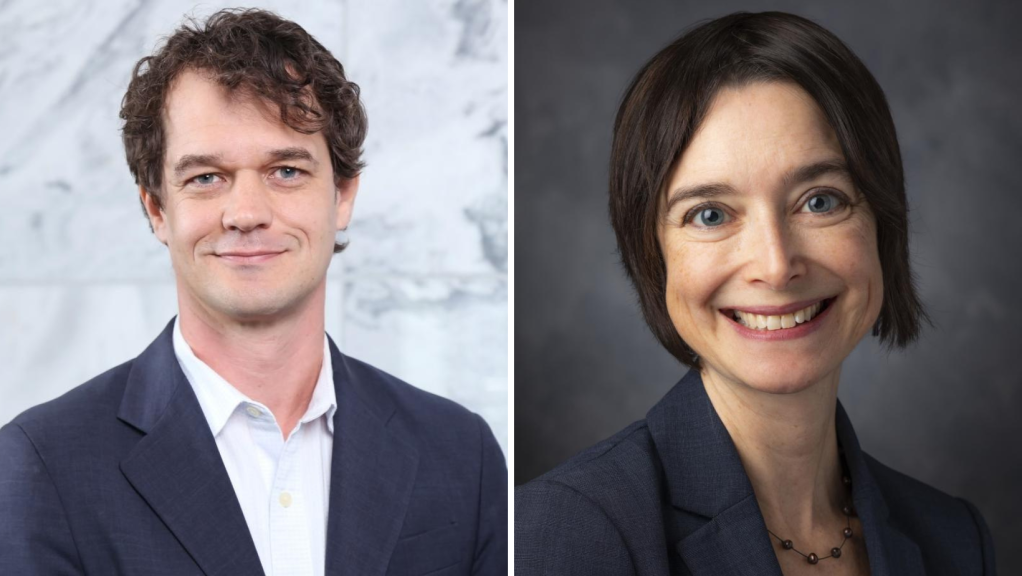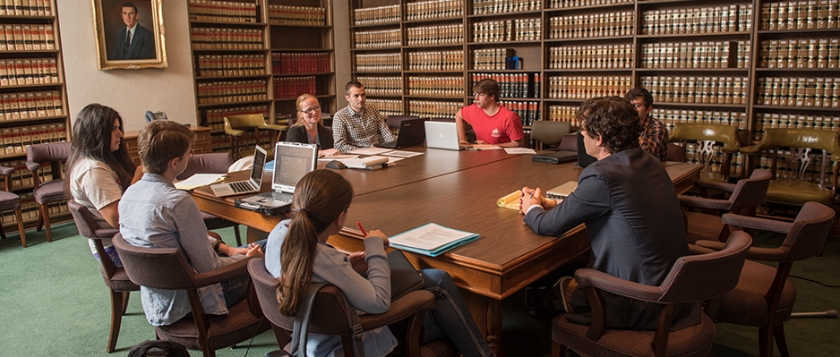
Professors Jason A. Cade and Clare R. Norins presented at the Association of American Law Schools’ 2024 Conference on Clinical Legal Education during May. Below are descriptions of their panel discussions:
Rapid-Response Legal Support for Movements: Seeking Immigration Protections for Organizing Workers
In the lead-up to and aftermath of DHS announcing new immigration protections for worker witnesses and amidst a rising tide of labor organizing across the country, immigrant workers and their organizations have turned to immigration lawyers—and especially law school clinics—as essential support for their campaigns. As law school clinics seek to respond to these requests, faculty and students are building a variety of rapid-response models to meet the movement moment, ranging from organizing-oriented individual representation to mass pro se legal clinics and everything in between. Along the way, legal teams must confront key values and ethics questions in movement lawyering as well as build best practices in this emerging area of legal expertise. These teams were integral to the advocacy push that resulted in the new guidance and are continuing to push for effective implementation that delivers for organizing workers and their organizations.
Presenters will share their varied approaches to key choices in organizing rapid response legal support for preparing deferred action for labor enforcement applications. These approaches will include reflection on the following questions:
- What legal models have worked well to respond to the growing need for legal support?
- How do we effectively involve students in building and implementing these legal models?
- How do we as legal advocates integrate organizing objectives, such as group solidarity and worker leadership, into efforts to provide large-scale legal services?
- How do we structure organizer, volunteer, and legal team information sharing to build trust and facilitate shared goals in representation and advocacy while also minimizing risk from disclosure of sensitive information?
- How do we work in coalition to advocate on individual cases and broader policy issues throughout implementation so that these immigration protections deliver for organizing workers and their organizations?
Through guided discussion and breakout exercises, this concurrent session will pose questions about the value, and risk, of engaging in wide-ranging advocacy and litigation in a law school clinic. Ten years after the Ferguson uprising, we have taken many lessons from social movements and how we can challenge and dismantle systems of oppression and injustice. We also continue to ask critical questions about the role that we, as lawyers, play in structural and systemic change. We hope to use this session to surface both the benefits and challenges of this kind of collaborative lawyering and to get audience input on best practices for moving forward.
In addition to Cade, this panel included Katherine Evans, Duke University School of Law; Georgina Olazcon Mozo, University of Washington School of Law; Zaida C. Rivera, Seattle University School of Law; and Mary Yanik, Tulane University Law School.
Wide Ranging Litigation and Advocacy as Resistance and Resilience in a Law School Clinic?
In this concurrent session, presenters, all co-counsel in the Oldaker v. Giles litigation, will explore the challenges and benefits of wide-ranging litigation and advocacy as tools of resistance and resilience in a clinical setting. In Oldaker, the presenters and their co-counsel filed litigation on behalf of fourteen women who suffered medical abuse at the Irwin County Detention Center in Georgia.
In addition to Cade and Norins, this panel included Sabrineh Ardalan, Harvard Law School; and Sarah Sherman-Stokes, Boston University School of Law.
Jason A. Cade is Associate Dean for Clinical Programs and Experiential Learning, J. Alton Hosch Professor of Law & Community Health Law Partnership Clinic Director. In addition to overseeing the law school’s 11 in-house clinics and 7 externship programs, Cade teaches immigration law courses and directs the school’s Community Health Law Partnership Clinic (Community HeLP), in which law students undertake an interdisciplinary approach to immigrants’ rights through individual client representation, litigation, and project-based advocacy before administrative agencies and federal courts.
Clare R. Norins, who also presented on the panel The Privacy Paradox: Balancing Transparency and Privacy in the Quest for Justice at this conference, is an assistant clinical professor and the inaugural director of the School of Law’s First Amendment Clinic, which represents clients in federal and state court on a range of First Amendment and media law issues. Representative matters include social media blocking by government officials, retaliatory arrest, the right to record, challenges to unconstitutional permit requirements, assertion of the journalist privilege under the Georgia Shield law, and defamation defense.


